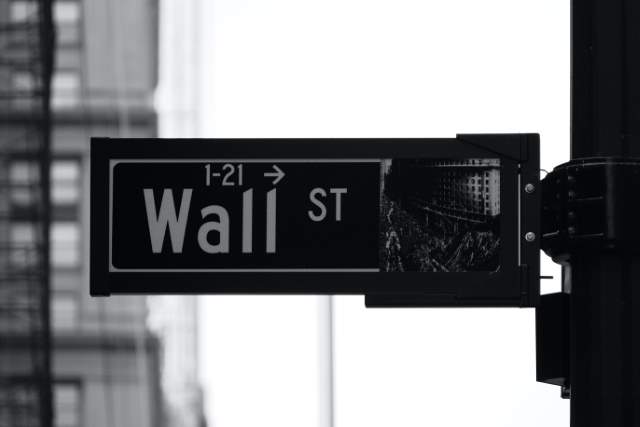No one wants to be boring, and financial advisors are no exception. Yet day after day we create plans for people to save more, spend less, be diversified, and protect themselves from risk. Truth be told, it can look like a boring path. We get it. Talking about paying down your highest interest rate debt first doesn’t make for good conversation at the backyard cookout. Do you know what does? Picking stocks.
Picking stocks has always been cool. It has always been associated with great wealth and freedom. The image of a Wallstreet stock-picker speeding around in a fancy car and suit are easy to find. Sure, there is the possibility of your pick going to zero, but that adds to the feeling of excitement. Plus, everyone knows someone who bought a stock that doubled or more in a year. Who wants to shoot for 7% when you could get 100%? Maybe we could just sin a little with a portion of our money? That can be a fun way to avoid FOMO (fear of missing out) while not putting your financial future at risk, but the devil is in the details.
The problem with picking stocks
The problem with picking stocks is that when someone wins, someone else must lose. Like in baseball, the hitter and pitcher can’t both succeed in the same at bat. For everyone who bought Amazon stock at $20 in 1998 (as of today it sits at about $3,000 a share) someone else had to sell it. Yahoo finance will publish the story of the trader who turned $10,000 into $1,000,000 by holding on for 20 years but not the person who sold when it dropped from $20 to below $7 a share in late 2001. It is revisionist history, written by the winners.
What makes stock picking so alluring, like gambling, is that anyone CAN get lucky. You really could build a fortune in the stock market without understanding how it works, but the odds are against you. We’ll use another analogy here which is poker. You could sit down at a table with the best players in the world and win a hand, or two, or three. However, most would agree that the longer you play the lower your odds are at leaving with significant gains. The stock market is similar in that if you make a few well-timed purchases and are willing to sit on them for a long time you could do tremendously well. Also, the more you trade in and out the lower those odds become.
In the past we had our own form of self-regulation in the form of trading commissions. Many places charged $20 per trade. If you didn’t have a lot to invest you were in a tough spot. A $100 monthly investment would lose 20% right off the top. It made it impractical for many young or small account size investors. That has all changed. Commissions on stock trades have fallen from $20, to $9.99, to $7, to $5, and now to $0. What a time to be alive…and trading stocks.
The new era in trading
The progress to zero commission trading on stocks was driven by discount brokerage firms like E-Trade and then followed by incumbents like TD Ameritrade, Charles Schwab, Fidelity and more. Unfortunately, the data is already in for retail traders and it isn’t good. In the first quarter of 2020 daily average revenue trades (a standard industry trading measurement) have increased by 144% at TD Ameritrade, 129% at E-Trade, and 98% at Charles Schwab. Knowing what we do about frequency of trading and performance this is clearly not good.
Another major shift in trading came from the ability to buy fractional shares of a stock on trading sites like Robinhood. Now investing $100 can get you 1/27th of a share of Amazon. A $1,000 portfolio can get you access to dozens of stocks with no cost to trade. On its face that is amazing because it allows for more of that boring thing called diversification. If retail investors would just buy a diverse group of individual stocks and hold them the changes would be a net positive. The numbers show that they aren’t doing that.
Were you wondering how all these online brokerages can make money now that trading is free? We’re glad you asked. There are a variety of ways, but we’ll specifically mention two as it relates to this stock trading issue. First, any money on their platform that is not invested (i.e. held in cash) they are depositing in a bank that earns them interest. They may credit you .10% or something while they earn 2%, keeping 1.9% as profit. Research has shown the more you change investments the more time you are likely to hold money in cash. Second, each order you place is routed to trading firms to be filled. Those firms match buyers and sellers and profit off the spread between the bid and ask price. Part of that profit is paid back to the brokerage firm for sending them the order. While highly regulated it is still an opaque process for retail investors and a source of drag on returns with frequent trading.
Sin a little
So, what is the answer? Never buy stocks? Never have fun? Our answer to this problem is to go wild, but with an amount that you can afford to lose without derailing your financial goals. It will be a different amount for everyone, whether it is $100 or $10,000, but the premise is the same. Give yourself an outlet to take a risk, bet on a favorite company, or test a theory on the economy in a tangible way. When your retirement date isn’t affected by your stock picking ability it removes the stress and can actually make investing fun. We know this isn’t for everyone, but those that feel the urge can take advantage of this new lower barrier of entry in a responsible way.

